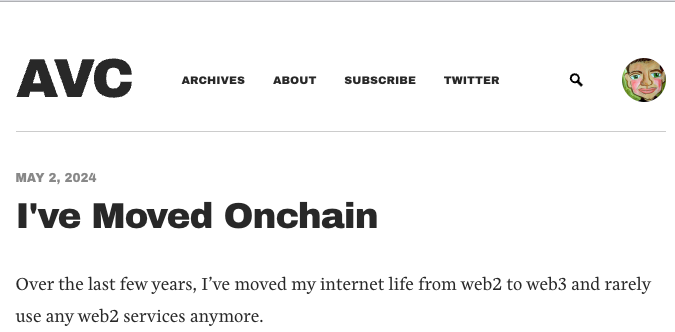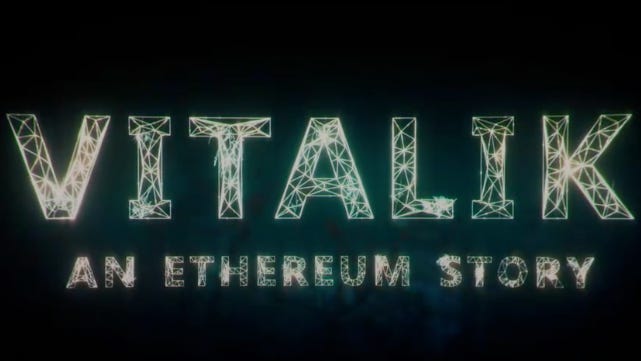Platform Agnostic
Aemula Writer Spotlight - 10.10.24
Today’s media landscape has splintered into countless pockets of isolated information. Major publications compete for market share by targeting increasingly specific niches. As everything moves behind a paywall, readers are left with the burden of determining how to prioritize their subscriptions, with many becoming fatigued by both the cost and the process.
To assist in their search, readers rely on social media algorithms to serve them trending content of interest. However, these algorithms are not geared to promote high-quality, impactful stories. Instead, they are optimized for engagement and meant to grab attention for the sake of selling advertisements.
The result is that most readers sift through the noise of social media to find quick insights, but they soon tire of the sheer amount of information — 66% of Americans feel worn out by the amount of news available. To resolve this, they often focus their attention on a single publication. This is not necessarily a reader preference, but a necessity in our current system where fragmentation is the only answer — 75% of Americans believe it is a major problem that people get their news from a single source already aligned with their beliefs.
Journalists and writers in this system feel the negative effects of fragmentation. Without economies of scale, many publications are unable to afford the necessary resources to support their writers. Small publications are stretched too thin. This has led to a consolidation of resources within mainstream media outlets and an increasing number of writers deciding to go independent. Yet, these writers are now left to compete for reader attention in a crowded space.
The equilibrium we have found ourselves in is characterized by underfunded publications, unsupported independent writers, and subscription-fatigued readers who are overloaded with information within their existing silos of beliefs.
We believe there is a better equilibrium in the media market, and we aim to push the industry to achieve it. Let us do the hard work for you. We can personally curate relevant and impactful stories from diverse sources. We can provide an established audience and a full range of resources for writers. We can do this because we are a decentralized community, fully committed to supporting independent journalism and reinvesting our resources back into the community itself.
Media should not consist of fragments, clusters, or bubbles that are guided by deep-pocketed power players with perverse incentives—it should be a cohesive, fluid, high-resolution ecosystem that facilitates ease of discovery and rewards quality, nuanced writing from unique perspectives.
A reader shouldn’t have to care about which platform they use to find their news, they should only care about enjoying the quality of the content they read. A writer shouldn’t have to decide which platform they must align with to publish their work, they should only care about the quality of the content they are inspired to create. The underlying platform should work seamlessly behind the scenes. We should aim to be platform agnostic.
On that theme, this week’s writer spotlight is platform agnostic as well, spanning various outlets — all worth your time and attention.
as seen on
Written by Ochuko Akpovbovbo, who speaks from the intersection of business and culture, drawing on an academic background in Economics and Entrepreneurship and a professional background in Brand and Marketing.
“On Substack, you have the Creators, the Writers, and then you have people like me who don’t identify as either of those things. I’d argue that this category makes up the majority of the platform. I work in Sports, and one of the most interesting things I’ve learned about the "running market" is that the biggest chunk of it doesn’t even consider themselves runners. Millions of people go on runs pretty regularly and buy running shoes maybe once or twice a year. Only a small segment of those millions self-identify as runners. Most people writing on Substack don’t even identify as writers. Instead, they identify as Substackers (definitely non-derogatory), a term that carries its own baggage and implications.”
It is also worth reading the referenced Semafor article “Substack wants to do more than just newsletter” written by Max Tani.
Valley Letter
Written by Al Khan, who founded Valley Letter to share his insights into the Silicon Valley tech scene after bootstrapping his company CloudDevs, a LatAm tech talent pool.
Democracy is the Source of Stagnation
“There's a creeping sense that something isn’t right with our world. Sure, technology is everywhere, and we’re more connected than ever, but where’s the bold progress? Where are the flying cars and revolutionary energy solutions we dreamed of? Instead, as Peter Thiel famously put it, “We wanted flying cars, instead we got 140 characters.” In that one line, he captured a lot of frustration with the state of the world today.
We’ve traded in real-world innovations for digital distractions. Social media companies, streaming platforms, and cloud services dominate our lives, but when you step back and look at it, this isn’t the future we were promised. So what happened? Why have we stopped pushing for big, transformative changes?”
AVC
Written by Fred Wilson, co-founder and partner at Union Square Ventures. He has been blogging through AVC since 2003 and recently moved the blog onchain at avc.xyz, which is operated through Paragraph.
Writing Online is a Conversation
“The number one thing I hear from people who want to write online more is that they struggle to publish incomplete ideas and unpolished compositions.
What I have learned from writing online regularly for over twenty years is that writing online is a conversation.
What I mean by that is that you are not trying to publish complete ideas. You are engaging in a conversation with the world and you are a participant in that.”
Also, a bonus AVC post about the Ethereum documentary:
The film is available to watch at ethereumfilm.xyz. If you are interested in learning more about decentralized networks and the long-term vision for Ethereum, it is well worth a watch.
If you want to support any of these writers, we highly encourage you to subscribe to their individual publications. If you want to support independent journalism more broadly, we offer both paid and free subscriptions for you to stay informed!
All subscription revenue is reinvested directly into the independent journalism community.
Follow us on X to stay up-to-speed on our progress towards launching the Aemula platform.
We would love to hear your thoughts on our mission in the comments!
What are your thoughts on the current state of our news media? Let us know in our new survey. It is 10 questions and should only take a minute!
Sources:
Reuters Institute Digital News Report 2023
The 2022 American Journalist Study








